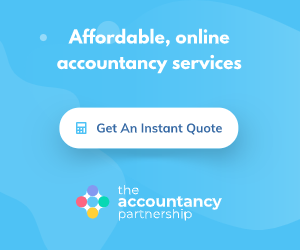Most people who freelance full time started off doing it on the side. Using nights and weekends to grow their business, most freelancers keep their day job in the early days unless they have savings to cover living expenses until they can rely on a regular income. It’s only reasonable, freelancing can be a slow start and a low earner at first.
Freelancing on the side is also a good opportunity to see whether the freelancing life is really for you. Some people like the idea of working for themselves, but this fantasy rarely makes its way into reality. Freelancing is not as easy as some people think it is and having the initial security of a day job makes the jump a little easier.
While you might still be experimenting with freelancing, there are plenty of nitty gritty boring details that you need to be aware of.
If you are working for an employer and you are earning money on the side, you need to declare this income because it is subject to tax and possibly to national insurance payments. Even if you don’t expect to earn much, HMRC still want to know about your business and your casual income. You don’t want to annoy HMRC.
Income tax
If you’re self-employed, this should not affect your tax code or NI as an employee. You will still pay the relevant income tax and Class 1 National Insurance which is automatically deducted by your employer.
Any profits you get from your self-employed work will be subject to income tax. Tax is payable on profits only, rather than gross income. Even if you don’t technically pay yourself a wage or your profits are still in a business bank account, you still need to pay tax. It’s still profit. This is where noting down your expenses and keeping receipts becomes important. You can then deduct these from your profit and therefore owe less in tax.
You pay income tax on all earning above the personal allowance at the basic rate of 20% or the higher rate of 40%, depending on how much you earn in total.
National Insurance
You will either pay Class 2 or 4 NI on top of the Class 1 contributions automatically taken from your salary by your employer.
Class 2 is if your profits are £5,965 or more and are set at a flat rate of £2.80 a week. They are usually paid monthly, quarterly or you can defer them to the end of the tax year when you know how much you should be paying. It’s possible that you might be overpaying because you won’t find out until the end of the first year whether you are making enough to be subjected to self- employment NI contributions. If you’re not making enough you can still make voluntary contributions and this will come under another NI code.
Class 4 applies if your profits are between £8,060 and £43,000 and are set at a rate of 9%. If you earn more than £43,000, then it’s 2%.
Self-assessment
In order to find out how much tax and National Insurance you will need to pay, you must fill out a self-assessment form. On your tax return, you can use the ‘employment pages’ to tell HMRC about the income you receive from your employer as well as the income you receive from your side business. HMRC will then work out the total income tax you owe and it will be up to you to pay the tax owed from your side business. This is why it’s important to set aside some money from your earnings so that you’re not surprised by a big tax bill at the end of the year.
Casual income
This applies to casual income that is not from a ‘business’. On your self-assessment form it will come under ‘other income’. It will likely not be subjected to National Insurance but will be subjected to income tax, the same way as your employee earnings.
There have been calls for a reform to this system as it is seen by most as over complicated. The minister for small business, Anna Soubry, agrees that changes need to be made and hopes that tax rules will be simplified in the future. She recently spoke at the Association of Independent Professionals and the Self-Employed (IPSE) Policy Conference, saying ‘what is the point of National Insurance when paying tax? I want it to be much simpler and easier to do.’
One way to avoid the headache of working out your tax, expenses and National Insurance is to hire an accountant. Try to find one who specialises in freelancers as they will have more experience in dealing with your situation.
Have you run into any problems with tax, NI or self-assessment? Should rules be changed to make it easier for freelancers? Let us know your thoughts in the comments below.
Get more advice on finding a great freelancer accountant: Need an accountant?








